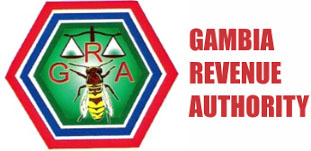Import Licences - Gambia
- Gambia
- Resources
- Market Information
- Import Licences

Import procedures and requirements
Import licenses, Gambia Import Licenses
Images
Overview
The customs and excise Act 2010, provides for the assessment of charges and collections of customs and excise. All imports and exports are subject to customs control. Unless customs entry is provided by the importer, goods are not allowed to be unloaded from vessel or aircraft.
Importation by Air, Sea and Land Borders
What is a Single Administrative Document (SAD)?
This is the document an importer or agent uses to declare to customs.
Import prohibitions and restrictions
Prohibited imports include false or counterfeit money; indecent or obscene articles, matches containing white phosphorous; denatured spirits, unless duly certified; articles deceptively marked with Gambian coats of arms; advertisements for cures for cancer, tuberculosis or venereal/sexual diseases or complaints; distilled spirits containing specified essential oils or chemicals that are injurious to health; manufactures falsely labelled as of Gambian origin; firearms, ammunition etc., imported by post; goods that do not meet the Gambian Bureau of Standards requirements or that are certified by a public medical officer as hazardous to health; seditious, scandalous or immoral literature; waste and sludge deposits; any goods prohibited under the terms of any international convention to which The Gambia is a signatory; skimmed milk, if not clearly identified; any organic phosphorous compound; and "exhausted" tea.
Under the provisions of the Rotterdam Convention, The Gambia has banned imports of DNOC, parathion, dustable powders of benomyl, thiram and carbofuram, ethylene dichloride and oxide, and monocrotophos. Under the Stockholm Convention, The Gambia bans all imports of persistent organic pollutants (POPs) listed in Annex A (see Chapter II(3) for The Gambia's participation in these Conventions.
The Gambia maintains no specific quotas on any imports. Imports of the following goods are conditionally restricted: tear gas and similar substances, and their propellants, other than permitted by the Minister of Interior; alcoholic spirits, unless certified as aged in wood for at least three years (however, no certificate is needed for bitters, liqueurs, cordials, gin, Geneva, hollands schnapps, rum, or spirits imported for medical, industrial or scientific purposes); postal franking machines, except as permitted by GAMPOST; Boy Scout or Girl Guide badges, except under permission of the relevant Commissioner; firearms silencers, except as permitted by the Minister of Interior; precious metals from Sierra Leone, Liberia, Guinea Conakry, Côte d'Ivoire, Ghana, Nigeria, Niger, Mauritania, Cape Verde, except under permit from the Minister of Finance; used motor vehicles, except with official certificate of roadworthiness; machines for duplicating keys; handcuffs, except under licence by the Minister of Interior; live fish not native to The Gambia, except under licence by the Minister of Fisheries; and any goods prohibited under the terms of any international convention to which The Gambia is a signatory.
For more information visit;





